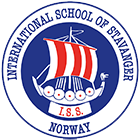LEARNING SUPPORT
At the International School of Stavanger, we believe everyone is capable of learning and achieving, and we work together to provide the extra support that many students may need along the way.
The ISS Learning Support team is an integral part of the school and provides services from the Early Childhood section to the High School, depending on the need. The aim of the programme is to promote independence and enable children and students to access the curriculum in the mainstream classroom alongside their peers.
Within our team, we have professionals with qualifications, expertise and experience in a wide range of special educational needs including:
- Specific learning difficulties such as dyslexia, dyscalculia, dysgraphia and dyspraxia
- Speech, language and communication delays and disorders
- ADHD and ADD
- Aspergers and Autistic Spectrum Disorders
- Physical and sensory impairments
- General literacy and numeracy delays and difficulties
Our Learning Support specialists are fully involved in the admissions process and parents are expected to provide relevant documentation and professional reports where required. ISS is not a selective school, but it should be noted that a placement at ISS will not be in the best interests of children and young people with complex special educational needs.
The aim of learning support in Early Childhood is to promote the children’s independence and enable all children to access the curriculum in the mainstream classroom alongside their peers. The focus in the early years is on the development of language and communication skills, moving on to reading and written language skills and numeracy skills.
Interventions are provided by Learning Support teachers or specialists in individual or small-group sessions, and always in collaboration/consultation with classroom teachers, parents and other professionals who may be involved.
The nature of needs of some children may mean that in addition to the interventions they receive from a Learning Support teacher, they would benefit from the services of a Learning Support Assistant (LSA) in the classroom for some or all of the school day. The decision to employ an LSA will only be made after full discussion with parents, teachers and other professionals involved. If an LSA is required, additional fees will be incurred.
The aim of learning support in the Primary School is to enable all students to access the curriculum in the mainstream classroom alongside their peers and to promote the students’ independence. The focus is on supporting the development of reading, written language, mathematical and speech/language skills.
Services are provided in an individual or small group setting by a Learning Support teacher or trained professionals and through consultation/collaboration with classroom teachers and parents. An Individual Learning Plan (ILP) is written annually for students receiving this provision.
The nature of needs of a few students may mean that, in addition to the interventions they receive from a Learning Support teacher, they would benefit from the services of a Learning Support Assistant (LSA) in the classroom for some or all of the school day. The decision to employ an LSA will only be made after full discussion with parents, teachers and other professionals involved. If an LSA is required, additional fees will be incurred.
The aim of learning support in the Middle School is to enable all students to access the curriculum in the mainstream classroom alongside their peers and to promote the students’ independence. The focus of learning support lessons in the Middle School is on supporting the development of individual reading, written language and mathematical skills, as well as introducing and developing a variety of study techniques and strategies to help the students become effective learners and self-advocates.
Students with relevant needs can take learning support lessons in place of a modern foreign language, after full discussion with parents, student and the Principal.
The aim of learning support in the High School is to promote the students’ independence and to enable full access to the academic curriculum.
Depending on need learning support is provided through guided study lessons, where the emphasis is on providing support with the curriculum and on developing effective study and self-management skills. In Grades 9-10, students with learning support needs can take guided study lessons in place of a modern foreign language or an elective. In Grades 11-12, the students arrange times with the Learning Support teacher. The Learning Support teacher/specialist also works alongside the IGCSE and IBDP coordinator to insure students receive arrangements appropriate to their needs for examinations.
The Learning Support program at ISS was an essential, front-line service for my child for 3+ years. Most uniquely of all, ISS believed that my child with extra special challenges brought tremendous value to the learning experience of his peers and became a treasured asset in the early childhood classrooms. This combination of professional support and genuine acceptance is priceless. – Former Early Childhood Parent
